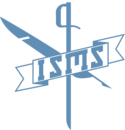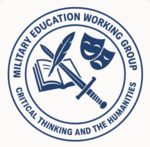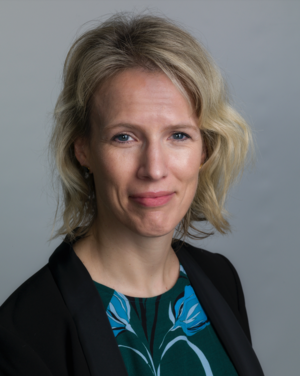Curriculum development, pedagogy, standards and evaluation, professional development, academic freedom, case studies/simulations/exercises, professional collegiality in military education.
Working Group 9 Military Education, invites abstracts and expressions of interest to contribute to a peer-reviewed special issue/edited collection on the topic of critical thinking in professional military education (PME), with a particular emphasis on the role of the humanities in developing this important skill. Planned publication is in 2027.
Dr. Anne Marie Hagen, Associate Professor, Norwegian Defence University College, email
Anne Marie Hagen is associate professor in English at the Norwegian Defence University College (NDUC). She holds a PhD in English Literature from the University of Edinburgh (2015) and has been a postdoctoral research fellow at the Institute for Advanced Studies in the Humanities (IASH, Edinburgh).
She teaches courses ranging from the philosophy of science and scientific methodology to the operations environment, and she is also a Scholarship of Teaching and Learning (SoTL) faculty mentor.
Hagen’s research is rooted in book history and in the history and sociology of reading. An ongoing research interest is the use of fiction in professional education programmes and how it contributes to the development of professional knowledge, skills, and identity. She is also interested in life-long learning: military professionals as writers and writing in the profession. She further researches the representation of war and war experiences in fiction and life writing, particularly how literature mediates between the military and civilian society.
Hagen heads the Military Humanities (MILHUM) research group based at the NDUC. MILHUM is a new multidisciplinary and interdisciplinary field of inquiry that seeks to understand and develop the military profession and military practice through the humanities disciplines.
Lars Wikman, Swedish Defence University, Conference Co-chair 2024
Björn Sjöblom, Swedish Defence University, Conference Co-chair 2024
Nuno Santos Loureiro, Portuguese Military University Insitutute, 2019-2023
David Last, Royal Military College of Canada, 2014-2019
Paul Mitchell, Canadian Forces College, 2011-2014
Description
WG 9 is a multidisciplinary working group drawing on any field relevant to higher education and professional development.
The Military education working group looks inwards at military education institutions and outwards to their place in society. It addresses the professional business of research, teaching and service within higher education institutions serving the defence community, and it addresses the evolution and role of higher defence education institutions in society and the international community. Its subjects may also interest Working Groups 6, 7, and 8.
Keyword descriptors*
Education, systems and institutions, teaching and learning; Organization studies; Political systems and institutions; governance; Communication networks, media, information society; Evolution of mind and cognitive functions; Epistemology, logic, philosophy of science.
Topics addressed include, but are not limited to:
Curriculum development, pedagogy, standards and evaluation, professional development, bodies of knowledge, academic freedom, case studies/simulations/exercises, practitioner research, institutional studies, professional collegiality in military education, international cooperation, epistemic communities, networks of learning, communities of practice.
Scope: What is the aim and purpose of this WG?
The military education working group aims to improve higher education of military leaders, through practitioner research, communities of practice and networks of learning. These processes are also subjects for study and reporting to improve both individual and institutional practice.
Participants and contributors who wish to consider revisions to the working group's aim and purpose should contact the Working Group Chair.
Working group activities include:
·produce a Handbook on Field Studies in Peace and Conflict (a multiyear collaboration between Norwich University US, and RMC Canada to produce a guide for cadets conducting self-directed experiential learning)
·find authors to contribute to the proposed Handbook of Military Sciences in fields related to military education
·support evaluation of equivalencies by comparing notes between institutions
·support enhancement of curricula content by linking to experts in other institutions (e.g. requests by University of Namibia – WG Chair finds additional resources and helps link)
·share curricula, course outlines, reading lists and expert biographies
·provide a clearing house for enquiries about sabbaticals and faculty exchanges (limited to establishing initial contacts)
·share notifications of conferences and publications of interest to members of the working group
·coordinate special journal issues or publication of relevant work by organizing panels and linking authors to editors
History:
The Military Education Working Group started in 2011 and had its first panel at RMC Kingston. Sweden’s National Defence University and Paul Mitchell at the Canadian Forces College were instrumental in organizing panels. Since then, papers have tended to cluster around teaching within institutions, and the role of institutions in national and international communities. A list of papers and authors by year is attached.
Paul Mitchell (CA) was the founding Chair, from 2011 to 2014, succeeded by David Last (CA) who currently serves.
David Last, Paul Mitchell, and David Emelifeonwu established a web 2.0 site, Globalsecurityeducation.org, hosted by Ontario’s Research and Innovation Optical Network (ORION) from 2013 until the service was terminated in August 2016. The site included conference information, curricula and course outlines, a wiki on security institutions, and a collective blog. At the time it closed, it had 225 members from 25 countries and
Current projects include the Handbook on Field Studies in Peace and Conflict aimed at cadets and young officers, and an effort to re-establish a web 2.0 site for sharing information for educational institutions. Links have been established with European Security and Defence College (ESCD), NATO Defence Education Enhancement Project (DEEP), the International Symposium on Development of Military Academies (ISoDoMA) and the recently formed International Association of Military Academies (IAMA) which addresses pre-commissioning institutions.
Related contact information (June 2017)
Chair of ISMS Military Education Working Group
Lieutenant Colonel Nuno Alberto Rodrigues Santos Loureiro, Military University Institute of Portugal, loureiro.nars@ium.pt
Coordinators for working group on teaching strategic design
Dr. Philippe Beaulieu-Brossard, Canadian Forces College, email
Dr. Paul Mitchell, Canadian Forces College, email
Secretary of the International Association of Military Academies (IAMA)
Dr. Ian Parenteau, College militaire royale de Saint Jean, website, email.
The 2025 biennial conference of IAMA, known as the International Seminar on Military Academies (ISOMA) will be held in Kosovo in 2025.
European Security and Defence College (ESDC)
Head of the ESDC Dirk Dubois, dirk.dubois@eeas.europa.eu
Colonel Harald Gell, PhD, Office, herald.gell@bmlvs.gv.at
Military Erasmus Program, www.emilyo.eu
Connections North and PaxSims
Professor Rex Brynen of McGill University runs Connections North, a community of practice dedicated to serious gaming. Follow their activities on the blog, Paxsims.


